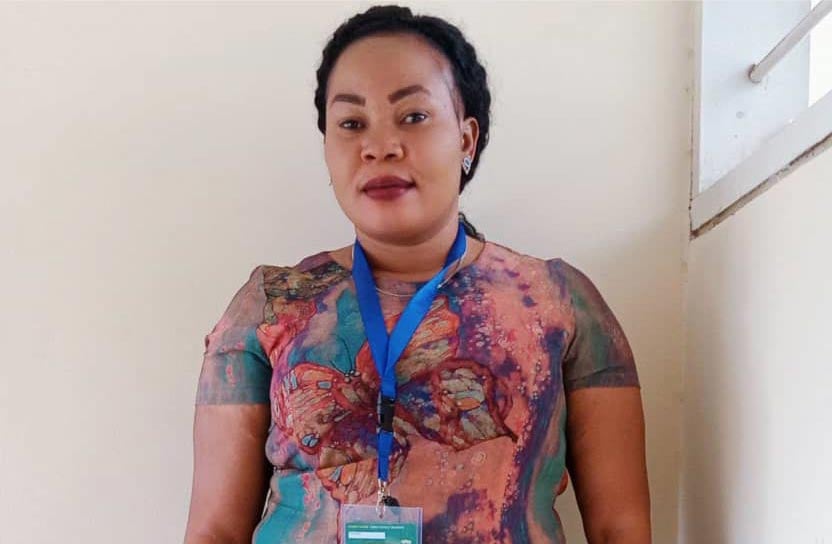Dr. Hussein Lujuo Mohammed is a lecturer at Tanzania’s Muhimbili University of Health and Allied Sciences.
He is an avid supporter of sustainable health care waste management, which is not regularly practiced in Tanzania. With support from the UNDP Sustainable Health in Procurement Project (SHiPP), Dr. Mohammed identified the potential challenges of recycling plastics, assessed the daily number of plastics procured by recyclers and developed an assessment methodology for all potential recycling companies.

Miriam Mongi - Environmental Health Officer, Sinza Hospital Dar es Salaam, Tanzania.
2021 © UNDP Tanzania
In Tanzania, the growth of health care facilities has been one of the triggers of increased health care waste generation.
With an estimated 60 to 70 tons of health care waste being generated every day in the country, plastic waste, such as syringes, infusion bottles, drug containers, feeding tubes, and catheters tend to occupy a large percentage of waste. Plastic waste has been widely discussed in terms of its non-biodegradability characteristics and the consequent problem of soil contamination.

The recycling of autoclaved health care plastic wastes is possible if regulations and decisionmaking organs are supportive. Development partners in Tanzania should continue supporting projects like the SHiPP
- Miriam Mongi
Environmental Health Officer, Sinza Hospital Dar es Salaam, Tanzania
Recycling of health care plastics is not a standard practice in Tanzania. This further complicates plastic waste management.
UNDP, through SHiPP, is working with Muhimbili National Hospital, Mwananyamala and Sinza Hospitals in Dar es Salaam to introduce sustainability in procurement practices and waste management. These hospitals serve about six million people in Dar es Salaam and the neighbouring regions. The project works with the Ministry of Health, Community Development, Gender, the Elderly and Children to encourage the minimisation of plastic waste by improving procurement practices and assessing, as well as identifying potential buyers of plastic waste from health care facilities.
Recycling has played a significant role in protecting human and environmental health along with cost reduction in health care settings. “Recycling plastic waste is not a new concept. However, it becomes a complicated idea only when you refer to recycling waste from health care facilities. The infectious nature of health care waste is what raises concerns among people,” says Dr. Mohammed. He suggests introducing sustainable health care waste management technologies to facilitate recycling instead of burning waste.
Sustainable procurement has played a vital role during the pandemic.
According to Miriam Mongi, the Environmental Health Officer of the Sinza Hospital in Dar es Salaam, waste management is a source of income for hospitals, as waste is being sold to plastic industries for recycling. “Previously, we were receiving a lot of complaints from people living close to the hospital about the harmful smoke caused by the incineration process. After intensifying the recycling activities, the complaints stopped,” says Mongi. She adds that: “The recycling of autoclaved plastic wastes from health care facilities is possible if regulations and decision-making organs in place are supportive. Development partners in Tanzania should continue supporting projects like the SHiPP.”
Approximately 60 to 70 tons of health care waste is generated in the country every day.
Plastic waste tends to constitute a large percentage of this waste with items such as syringes, infusion bottles, drug containers, feeding tubes, and catheters.
Approximately 15 tons of plastic waste
is recycled every month at Sinza Hospital which generates savings of $3,200. Savings are then used to further support sustainable health care waste management activities.






